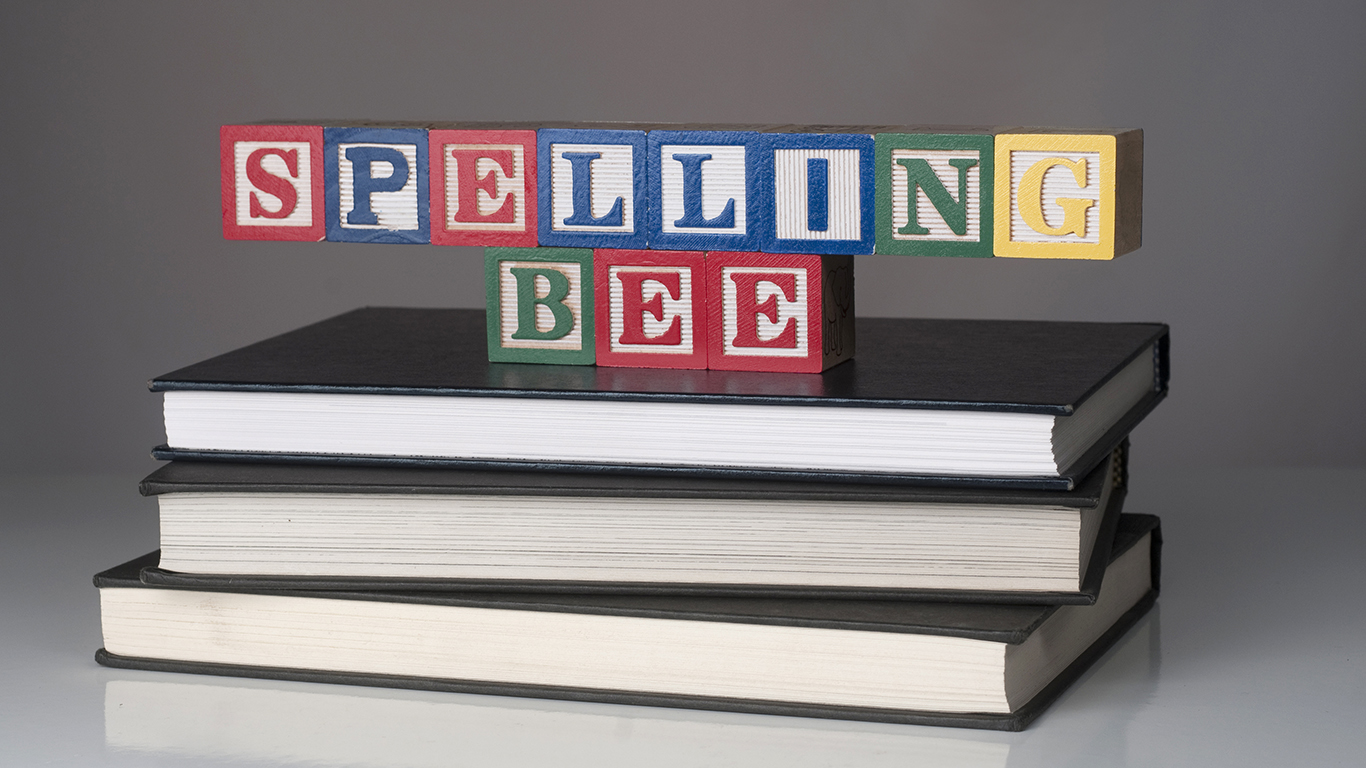Many people struggle with proper grammar usage in their writing. Those with expansive vocabularies tend to have a strong grasp of grammar rules when composing texts, emails, and letters. Using correct grammar demonstrates intelligence and care in communication. However, grammar mistakes are extremely common, even among those with large vocabularies.
Staying on top of proper grammar usage requires continual learning and vigilance. But putting in the effort to write with proper grammar shows respect for your readers and enhances clarity. With practice, the rules that trip people up like proper punctuation, subject-verb agreement, and pronoun usage can become second nature. Mastering grammar takes work, but it is a worthwhile endeavor for improving writing skills and showing intelligence in everyday communication.
To compile a list of common grammar mistakes people make all the time, 24/7 Tempo consulted several educational websites. These include Grammarly, Your Dictionary, Authority Self Publishing, and Scribe Media. (Click here to uncover 21 grammar rules that tend to confuse just about everyone.)
There vs. Their vs. They’re

People mix up there, their, and they’re all the time. “There” describes the position of a noun while “their” identifies a sense of belonging. Lastly, “they’re” is a contraction that combines they and are. These three words cannot be used interchangeably, even though they sound the same.
Missing commas

When you accidentally forget to place a comma in its necessary position, it can totally change the entire meaning of what you’re trying to say. An example of this would be, “Let’s eat, Grandma!” This sentence is designed to invite your grandma to eat with you. If you forget the comma and write, “Let’s eat grandma!” it sounds like you’re talking about eating your own grandmother!
Your vs. You’re

“Your” and “you’re” get swapped up by people who aren’t grammatically aware. “Your” is the word that defines belonging while “you’re” is a contraction of you and are. Just like there, their, and they’re, words like your and you’re cannot be used interchangeably under any circumstances.
Run-on sentences

Run-on sentences are problematic when included in written form. Sometimes they naturally occur when you’re talking out loud, but they shouldn’t exist when you’re writing things down. Run-on sentences consist of a bunch of fragmented pieces that don’t include periods, semicolons, or conjunctions. An example of a run-on sentence would be, “I love to go dancing I would dance every day if I had the time dancing is a great way to express myself.” The style of this run-on sentence is tacky, terrible, and grammatically incorrect.
Of vs. Have

Plenty of people don’t know the difference between “of” and “have.” They find themselves saying and writing things like, “I should of gone to the bank yesterday.” This is a massive grammatical error! The sentence is supposed to be, “I should have gone to the bank yesterday.”
Misspelled words

A very common grammatical issue happens to be misspelled words. If you aren’t sure about a word’s proper spelling, there are plenty of easy ways to check before submitting the final copy of a work document, homework assignment, or email. Confirm that your spelling words properly by using a simple internet search before accidentally embarrassing yourself with misspelled words in front of colleagues or classmates. (These are the most frequently misspelled words in the English language.)
To vs. Too

“Too” and “to” are very different, even though they sound the same and only vary by one letter. ‘To” is a versatile preposition that can be used to indicate directions and time frames. “Too,” on the other hand, is an adverb that can be used instead of similar words like also or as well.
Incorrect capitalization

When a writer capitalizes a word that doesn’t actually require a capital letter, it’s an obvious sign they aren’t grammatically informed. An example of this would be capitalizing a word like “university” when it isn’t attached to an actual school name. The word “university” doesn’t need to be capitalized by itself, but when you’re specifically talking about Harvard University, it does.
Its vs. It’s

“It’s” and “its” are two words that are often confused by people who are unaware of grammatical rules. When “its” is written with no apostrophe, it’s meant to be a possessive word for nouns that don’t have gender. It’s similar to his and her! “Its” with an apostrophe is a contraction for the word it and is.
Affect vs. Effect

“Affect” and “effect” might sound super similar, but these words couldn’t be more different. “Affect,” written with an A, is a verb that describes what it means to produce a change upon something or someone. “Effect,” written with an E, describes the results you witness once an action has been taken.
Shifting verb tense

If you’re constantly shifting between a verb tenses while writing, this is a sign you’re not up to par with grammar. An example of incorrect verb tense shifting would be, “I was watching my TV show. Suddenly, I hear the phone ring.” Instead, it should be, “I was watching my TV show. Suddenly, I heard the phone ring.”
Me vs. I

Since “me” and “I” are both first person singular pronouns, it’s understandable that people get them confused every once in a while. The difference here is that you’re supposed to use “I” when you’re the subject of a sentence. You only use “me” when you are the object of a sentence.
Non-parallel structure

Non-parallel structure is certainly something to master if you want to be skilled when it comes to grammar. An example would be, “I have fun traveling, reading, and to decorate.” You would correct that sentence by writing, “I have fun traveling, reading, and decorating.” The correct sentence has three verbs ending with “ing.”
Then vs. Than

An easy way to stop mixing up “then” and “than” is to understand the varied meanings. Then is used to describe timeframes of the past while “than” is used in comparison sentences. Some examples? “The children will have to wait until then.” And, “ she would rather eat cake, then pie.”
Missing possessive apostrophe

Apostrophes are totally necessary if you’re trying to convey possession in a sentence. An example of a missing possessive apostrophe would be, “Do you know where Billys jacket is?”
Sentence fragments

Sentence fragments are incredibly problematic in the English language. Sentence fragments often have missing subjects or main verbs, which means they’re difficult to understand. “Because the weather was terrible” is an example of a sentence fragment. Complete the sentence by adding the necessary details. “She missed work because the weather was terrible” is correct.
Past vs. Passed

“Past” and “passed” are two words that have the same sound while operating with different meanings. “Past” describes moments in history that have already happened. “Passed,” on the other hand, is the past tense of the verb pass. When used, it’s meant to describe actions or events that have already been completed.
Incomplete comparisons

An incomplete comparison neglects one item that needs to be mentioned for a proper comparison. If both items aren’t included in one sentence, the reader will be confused about what you’re referring to. An example of this would be, “Chocolate is so much better.” Chocolate is so much better than what? The sentence needs to be completed! “Chocolate is so much better than fruit snacks” is a solid way to bring closure to this comparison.
Lose vs. Loose

Loose shirts aren't trendy in 2024.
“Lose” and “loose” don’t exactly sound the same when they’re spoken out loud, yet people still frequently mix them up. “Lose” is a word to use if you’ve lost or misplaced something. “Loose” is an adjective used to describe things that aren’t as tight as they should be. A loose bottle top, a loose pair of jeans, or a loose bolt on your doorway are a few examples. People accidentally get words wrong all the time when they’re trying to communicate with one another. Click here to discover 50 words people get wrong all the time.
